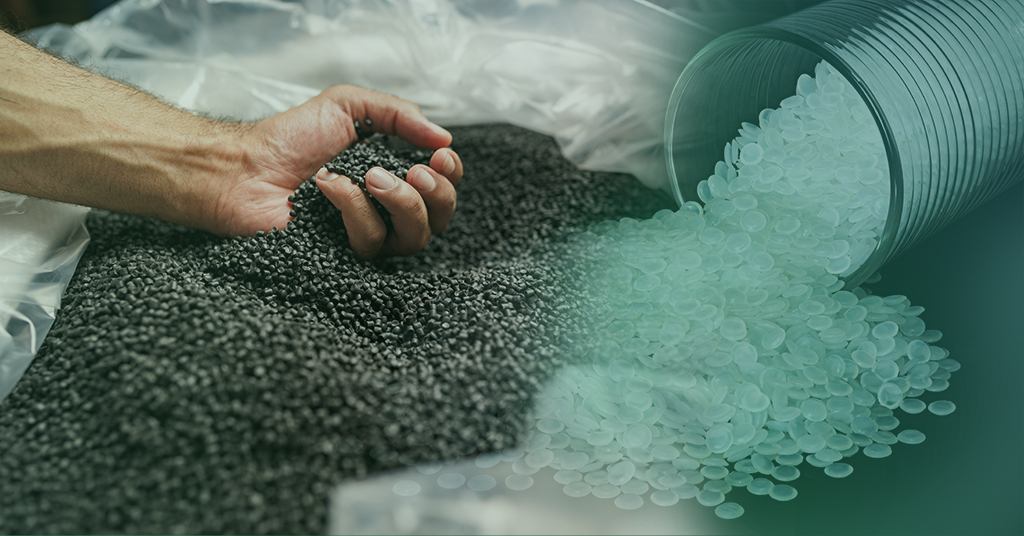Welcome To ChemAnalyst

Rumpke Waste & Recycling, in collaboration with specialty materials company Eastman, has unveiled a strategic partnership aimed at tackling the global plastic waste crisis head-on. This joint initiative, set to roll out later this year, underscores the commitment of both organizations to address the pressing environmental challenges associated with plastic waste.
Based in Cincinnati, Rumpke will spearhead the collection and sorting of hard-to-recycle and colored polyethylene terephthalate (PET) packaging—a material category that has largely remained underserved within the existing recycling infrastructure. Rumpke will channel 100 percent of this specialized material stream to Eastman's molecular recycling process, housed in Kingsport, Tennessee. Leveraging Eastman's cutting-edge molecular recycling technology, the material will be transformed into virgin-quality polyesters, which will find application across a diverse range of packaging solutions. This innovative approach not only unlocks new avenues for recycling previously overlooked materials but also contributes to the expansion of the circular economy for polyesters.
The urgency of the plastic waste crisis cannot be overstated, with a significant portion of plastic waste either evading collection for recycling or deemed non-recyclable through conventional means. The partnership between Rumpke and Eastman represents a proactive response to this challenge by establishing a new market for hard-to-recycle colored and opaque waste that currently languishes outside the realm of recyclability. Colored and opaque PET packaging finds widespread use in various consumer applications, spanning personal care products, detergent packaging, and food packaging. Regrettably, many of these applications have hitherto faced barriers in transitioning towards fully circular packaging solutions. Through Rumpke's commitment to innovation in processing techniques and Eastman's groundbreaking molecular recycling technology, this partnership aims to unlock the potential for circularity across numerous applications, diverting material away from incineration or landfill disposal.
Embracing the ethos of innovation, Rumpke and Eastman are spearheading efforts to keep fossil resources in the ground and pave the way for a more sustainable future. Their collaborative endeavor serves as a beacon of inspiration for the industry, underscoring the transformative power of collaboration in achieving genuine circularity within the plastics value chain. Both Rumpke and Eastman are steadfast in their dedication to pioneering innovative approaches to plastic waste reduction, recognizing the pivotal role of collaboration in driving meaningful change.
The partnership between Rumpke and Eastman underscores the symbiotic relationship between molecular and mechanical recycling methodologies, reinforcing the importance of a holistic approach in preserving valuable raw materials within the circular economy. By aligning their efforts, the two companies are empowering brands to meet their recycled content objectives while advancing the broader sustainability agenda.
The announcement of this partnership comes at a pivotal juncture for Eastman, as the company prepares to inaugurate its material-to-material molecular recycling facility at its Kingsport site. With the facility poised to commence operations and initiate product shipments in the imminent weeks, Eastman anticipates recycling an impressive 110,000 metric tons of hard-to-recycle plastic scrap annually—a testament to its unwavering commitment to sustainability and environmental stewardship.
In essence, the partnership between Rumpke and Eastman represents a paradigm shift in the approach to plastic waste management, emphasizing collaboration, innovation, and sustainability as cornerstones of the circular economy. By leveraging their respective strengths and expertise, Rumpke and Eastman are charting a path towards a more sustainable future, where plastic waste is transformed into valuable resources, rather than a burden on the environment.
We use cookies to deliver the best possible experience on our website. To learn more, visit our Privacy Policy. By continuing to use this site or by closing this box, you consent to our use of cookies. More info.
